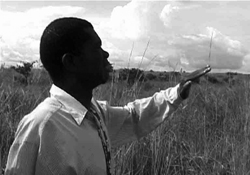
Choix d'un passé : traits d'union // 2001-2010, work in progress
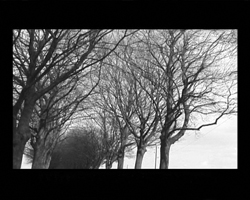
Choix d'un passé : traits d'union // 2001-2010, work in progress
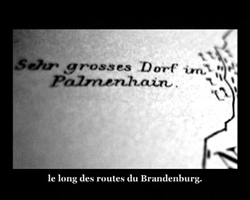
Choix d'un passé : traits d'union // 2001-2010, work in progress
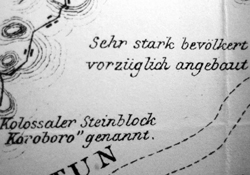
Choix d'un passé : traits d'union // 2001-2010, work in progress
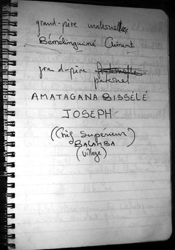
Choix d'un passé : traits d'union // 2001-2010, work in progress
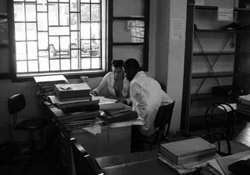
Choix d'un passé : traits d'union // 2001-2010, work in progress
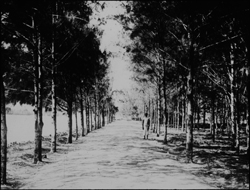
Choix d'un passé : traits d'union // 2001-2010, work in progress
Choix d'un passé : traits d'union
Brigitta Kuster and Moise Merlin Mabouna met in 2001 in the asylum seekers camp Zerbst, about three hours outside Berlin, to which Mabouna had been assigned when he came to Germany from Cameroon. Brigitta Kuster was about to initiate a project with the residents of the camp which was then to be shown at Werkleitz biennial 2002. In this way, the documentary video RIEN NE VAUT QUE LA VIE, MAIS LA VIE MÊME NE VAUT RIEN became the first chapter of an ongoing collaboration between them that investigates the largely concealed heritage of Germany's colonial engagement in Cameroon. "We think of memory as individual; you cannot share it like you share a meal, but maybe there are ways of letting the other participate", writes Brigitta Kuster about the ongoing project Choix d'un passé : traits d'union which she says was initiated by a "haunting visitation". For Mabouna a memory resurfaces. The "Germans" that he had learned to "admire" in his youth, and who were now submitting him to their humiliating bureaucracy, were also the protagonists in a family story that was handed down to him through the generations: In 1892 his greatgrandfather Bissele Akaba had led a resurrection against the colonial oppressors and in the course was captured, tortured, and killed by the Germans. For Kuster the initial haunting experience came with the realisation that "I didn't have the smallest bit of knowledge to which I could link this fractured memory, the story of the ancestors of a friend and that which potentially shaped his experience." The simple endeavour to share each other's stories became the complex challenge to understand the marks that colonial violence has left on them, without letting these marks determine their communication; to not ignore the "post-colonial condition" which messes with their roles, but to not accept these roles as necessary either. Their collaboration remains a work in progress and brings forth works in different media and formats.
VIDEO
2006-1892 = 114 ans/jahre, by Brigitta Kuster & Moise Merlin Mabouna
Video, 2006, 7 min., loop (deutsch/français/english)
À travers l’encoche d’un voyage dans la bibliothèque coloniale. Notes pittoresques, by Brigitta Kuster & Moise Merlin Mabouna
Video, 2009, 24 min. (deutsch/français)
MAP
4 maps on canvas, 2009 (french), by Brigitta Kuster & Moise Merlin Mabouna
TEXT
Brigitta Kuster (forthcoming), "L’avenir est un long passé" (Re-worked version of the lecture on November 11, 2008, at Künstlerhaus Büchsenhausen), Innsbruck (büchsenbooks), english/german
Brigitta Kuster (2008), “»J’y étais« On Continuing the Speaking of Testimonies from the Year 1892", Conversation with Stefan Novotny, english/german/español
http://translate.eipcp.net/transversal/0408/kuster/en
Brigitta Kuster (2006), "2006-1892=114 ans/jahre. Note d'intention", french/german
http://translate.eipcp.net/strands/03/kuster-strands01de
Brigitta Kuster
Kulturproduzentin, vor allem als Videomacherin und Autorin tätig; beschäftigte sich bisher mit den Themen Migration und transnationaler Raum, der Repräsentation von Arbeit, Geschlecht und sexueller Identität. Zusammenarbeit auch mit Pauline Boudry und Renate Lorenz, u.a. in einem langfristigen interdisziplinären Forschungsprojekt zu Arbeit und Sexualität. - vgl. queeringwork.de